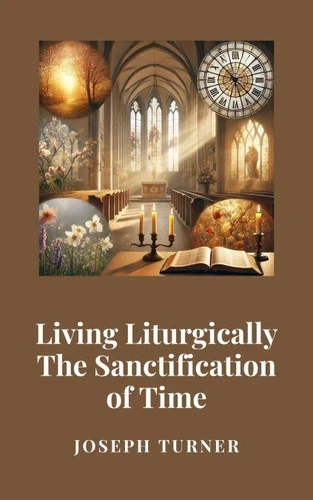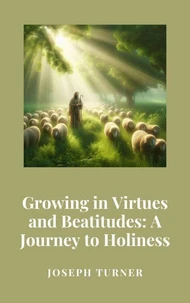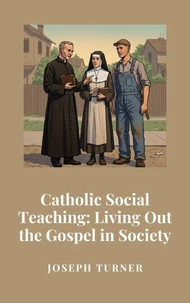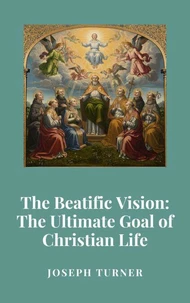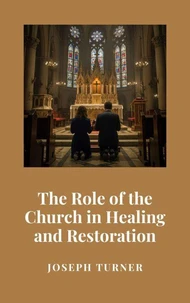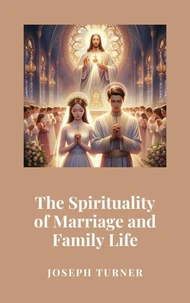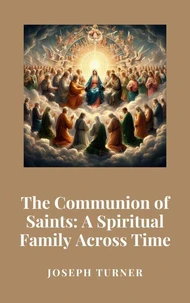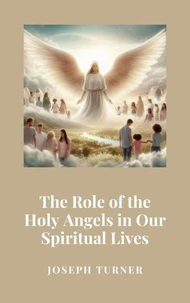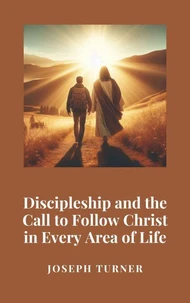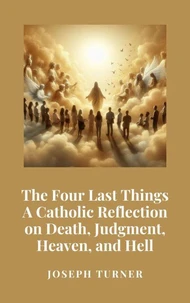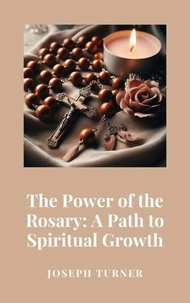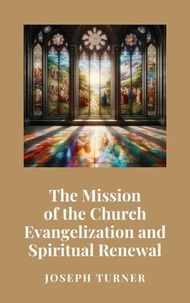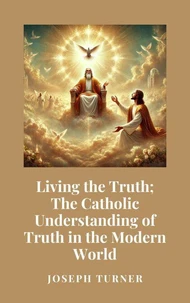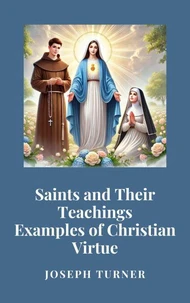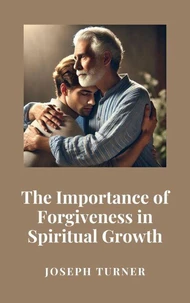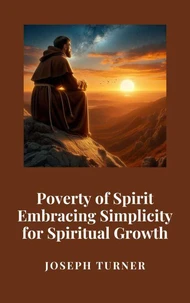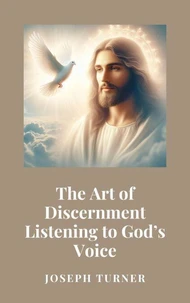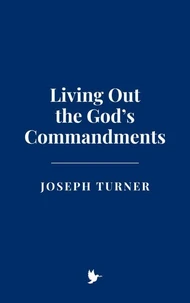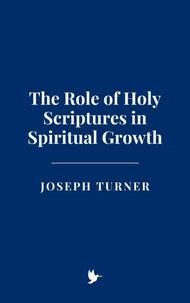Living Liturgically: The Sanctification of Time
Par :Formats :
Disponible dans votre compte client Decitre ou Furet du Nord dès validation de votre commande. Le format ePub est :
- Compatible avec une lecture sur My Vivlio (smartphone, tablette, ordinateur)
- Compatible avec une lecture sur liseuses Vivlio
- Pour les liseuses autres que Vivlio, vous devez utiliser le logiciel Adobe Digital Edition. Non compatible avec la lecture sur les liseuses Kindle, Remarkable et Sony
 , qui est-ce ?
, qui est-ce ?Notre partenaire de plateforme de lecture numérique où vous retrouverez l'ensemble de vos ebooks gratuitement
Pour en savoir plus sur nos ebooks, consultez notre aide en ligne ici
- FormatePub
- ISBN8230887416
- EAN9798230887416
- Date de parution22/02/2025
- Protection num.pas de protection
- Infos supplémentairesepub
- ÉditeurIndependently Published
Résumé
The very bedrock of liturgical living rests upon a profound understanding of time, not as a mere sequence of moments, but as a divine gift, a canvas upon which God paints His salvific narrative. To grasp this, we must journey back to the very dawn of creation, as recounted in the opening verses of Genesis. "In the beginning, God created the heavens and the earth." This "beginning" is not simply a temporal marker; it is the genesis of time itself, a moment where eternity intersected with non-being, where God, through His word, brought forth the temporal order.
The very structure of the Genesis narrative, with its rhythmic repetition of "and God saw that it was good, " establishes a divine cadence, a cyclical pattern that foreshadows the liturgical rhythms we are called to embrace. This creation of time is not a neutral act; it is an act of love, a bestowal of a precious gift upon humanity. To fully appreciate the Christian liturgical calendar, one must delve into its profound roots within the sacred timekeeping of ancient Israel.
The Old Testament is replete with examples of how God instructed His chosen people to mark time, not as a secular progression, but as a series of holy convocations, designed to draw them closer to Him. The very concept of a "sacred calendar" is itself a testament to God's desire to intersect with human history, to infuse temporal existence with eternal significance.
The very structure of the Genesis narrative, with its rhythmic repetition of "and God saw that it was good, " establishes a divine cadence, a cyclical pattern that foreshadows the liturgical rhythms we are called to embrace. This creation of time is not a neutral act; it is an act of love, a bestowal of a precious gift upon humanity. To fully appreciate the Christian liturgical calendar, one must delve into its profound roots within the sacred timekeeping of ancient Israel.
The Old Testament is replete with examples of how God instructed His chosen people to mark time, not as a secular progression, but as a series of holy convocations, designed to draw them closer to Him. The very concept of a "sacred calendar" is itself a testament to God's desire to intersect with human history, to infuse temporal existence with eternal significance.
The very bedrock of liturgical living rests upon a profound understanding of time, not as a mere sequence of moments, but as a divine gift, a canvas upon which God paints His salvific narrative. To grasp this, we must journey back to the very dawn of creation, as recounted in the opening verses of Genesis. "In the beginning, God created the heavens and the earth." This "beginning" is not simply a temporal marker; it is the genesis of time itself, a moment where eternity intersected with non-being, where God, through His word, brought forth the temporal order.
The very structure of the Genesis narrative, with its rhythmic repetition of "and God saw that it was good, " establishes a divine cadence, a cyclical pattern that foreshadows the liturgical rhythms we are called to embrace. This creation of time is not a neutral act; it is an act of love, a bestowal of a precious gift upon humanity. To fully appreciate the Christian liturgical calendar, one must delve into its profound roots within the sacred timekeeping of ancient Israel.
The Old Testament is replete with examples of how God instructed His chosen people to mark time, not as a secular progression, but as a series of holy convocations, designed to draw them closer to Him. The very concept of a "sacred calendar" is itself a testament to God's desire to intersect with human history, to infuse temporal existence with eternal significance.
The very structure of the Genesis narrative, with its rhythmic repetition of "and God saw that it was good, " establishes a divine cadence, a cyclical pattern that foreshadows the liturgical rhythms we are called to embrace. This creation of time is not a neutral act; it is an act of love, a bestowal of a precious gift upon humanity. To fully appreciate the Christian liturgical calendar, one must delve into its profound roots within the sacred timekeeping of ancient Israel.
The Old Testament is replete with examples of how God instructed His chosen people to mark time, not as a secular progression, but as a series of holy convocations, designed to draw them closer to Him. The very concept of a "sacred calendar" is itself a testament to God's desire to intersect with human history, to infuse temporal existence with eternal significance.

